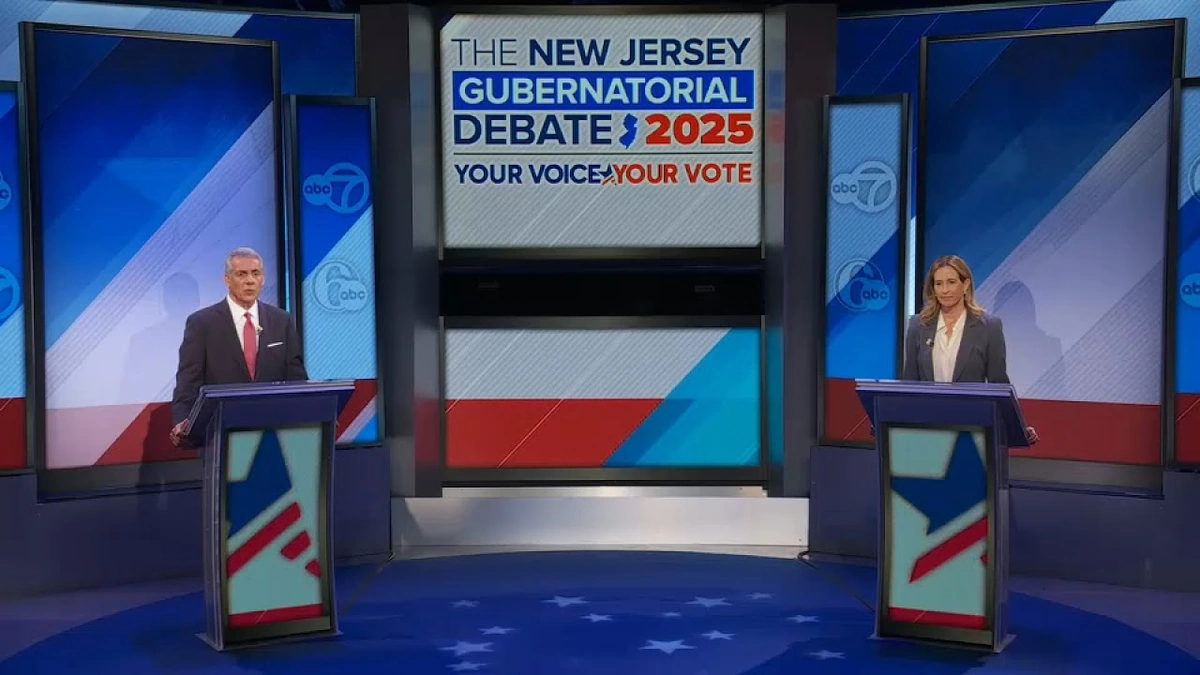Alright, folks, let’s dive into the Garden State’s political showdown! The New Jersey Governor’s Debate between incumbent Democrat Phil Murphy and Republican challenger Jack Ciattarelli was, to put it mildly, a barn burner. But here’s the thing: debates are often more about the why than the what. It’s easy to summarize what they said about property taxes , energy policy, or even (sigh) Donald Trump, but what does it mean for you, the average New Jerseyan trying to make ends meet?
I’m not just going to rehash the talking points. I’m here to break down the underlying issues, the unspoken implications, and what the heck it all means for your wallet, your commute, and your future. So, grab your coffee (or your preferred beverage), and let’s get started.
The Elephant in the Room | Property Taxes and the Cost of Living

Let’s be honest: New Jersey property taxes are legendary – and not in a good way. Both candidates know this is a major pain point for voters. Ciattarelli hammered Murphy on the state’s high cost of living, especially property taxes. Murphy, for his part, defended his record and pointed to efforts to provide property tax relief. But here’s the ‘why’: New Jersey’s reliance on property taxes to fund local services creates a system where wealthier towns thrive, and poorer towns struggle. It’s a deep-seated structural issue, and simply shifting the blame doesn’t solve anything. Ciattarelli’s proposed solutions involve capping property tax increases and reforming the school funding formula. Murphy argues his administration has already made strides in affordability.
What fascinates me is how neither candidate fully addressed the fundamental question: how do we create a more equitable and sustainable funding model for our communities? Link to the trending page
Energy Policy | Green Dreams vs. Economic Realities
Ah, energy – a topic that’s both vital and incredibly complex. The debate touched on New Jersey’s ambitious goals for renewable energy, particularly offshore wind. Murphy is a strong advocate for these initiatives, touting their potential to create jobs and combat climate change. Ciattarelli, while not outright rejecting renewable energy, expressed concerns about the costs and potential impact on ratepayers. But – and this is a big ‘but’ – the real question is: How do we balance environmental responsibility with economic viability? Can New Jersey truly become a leader in green energy without placing an undue burden on its residents and businesses? I initially thought this was straightforward, but then I realized just how many factors are at play – from federal subsidies to technological advancements to the ever-fluctuating price of fossil fuels.
One thing that’s often overlooked is the role of energy efficiency. Improving insulation, upgrading appliances, and promoting energy-conscious behavior can have a significant impact on reducing energy consumption and lowering costs. What I am trying to say is that small changes in energy consumption may result in dramatic changes over a long duration of time.
Transit Troubles | Getting You From Here to There (Affordably)
If you’ve ever commuted in New Jersey, you know the pain. Congested highways, delayed trains, and exorbitant tolls are all part of the experience. Both candidates acknowledged the need to improve the state’s transportation infrastructure. Murphy highlighted investments in NJ Transit and efforts to modernize the system. Ciattarelli criticized the agency’s performance and promised to make it more efficient. But here’s the ‘why’ it matters: A reliable and affordable transportation system is crucial for economic growth and quality of life. It connects people to jobs, education, and opportunities. And when it fails, it hurts everyone. The state must ensure affordable transportation for its residents. According to Wikipedia , New Jersey is the most densely populated state in the United States.
The Trump Factor | Still Casting a Shadow?
Okay, let’s address the elephant in the other room. Donald Trump’s name inevitably came up during the debate. Murphy tried to tie Ciattarelli to the former president, while Ciattarelli attempted to distance himself. But the real question is: How much does Trump still matter in New Jersey? The state has shifted increasingly Democratic in recent years, but there’s still a significant base of Republican voters. And while Ciattarelli needs to appeal to those voters, he also needs to win over independents and moderates who may be turned off by Trump’s rhetoric. It’s a delicate balancing act, to say the least.
Let me rephrase that for clarity: Ciattarelli’s challenge is to energize the Republican base without alienating the broader electorate. I think it’s interesting how Trump’s influence, or lack thereof, continues to shape political races across the country. Check this article out for more related content .
The Bottom Line | What Does It All Mean for You?
So, after all the shouting and the sound bites, what’s the takeaway from the New Jersey governor’s race debate? It boils down to this: New Jersey faces serious challenges – high costs, aging infrastructure, and deep-seated inequalities. The candidates have different ideas about how to address these challenges, but ultimately, it’s up to the voters to decide who they trust to lead the state forward. The future of New Jersey’s economy and the well-being of its residents depend on the decisions that are made in the coming years.
FAQ Section
What if I’m still undecided?
Do your research! Read the candidates’ platforms, attend town halls, and talk to your friends and neighbors. Don’t just rely on sound bites or attack ads.
How can I register to vote?
You can register online, by mail, or in person at your county’s election office. The deadline to register is 21 days before the election.
Where can I find more information about the candidates?
Check out their websites, social media pages, and news articles from reputable sources.
When is the election?
The general election is on November 5, 2024.
Ultimately, what fascinates me is how these debates often reveal more about the candidates’ priorities and values than their specific policy proposals. And that, my friends, is something worth paying attention to.




